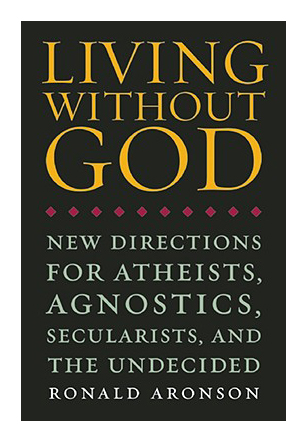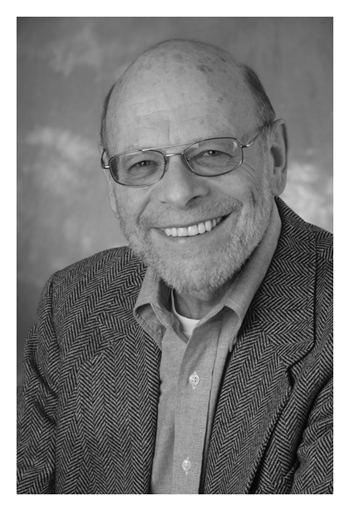The Reason “Everything Happens for a Reason”

The following is an excerpt from Living Without God: New Directions for Atheists, Agnostics, Secularists, and the Undecided by Ronald Aronson (Counterpoint Press, 2008)
Belonging to an impatient culture promising instant answers, often poorly equipped and overwhelmed, most people struggle to piece together their fragments of faith, knowledge, and experience as best they can. Some of the most curious spirits restlessly surf the Internet in hot pursuit of questions that their schooling has not helped them even to ask, let alone answer. They often begin by being rightly suspicious of all official stories and seeking more compelling explanations. In the infinite space of the web, with the whole culture at one’s fingertips, millions of answers cry out. It is the freest of all free markets, yet people are rarely trained to negotiate it.
With immense energy people search their way among gurus, conspiracy theories, spectacular short cuts, easy answers, the latest political scandal, parodies of ancient wisdom, pseudo-scholarship decked out in scientific trappings, real knowledge and thoughtful reflections, newfangled or eclipsed religious and political wisdom, every established and every insurgent point of view, and sheer nonsense–and they are free to consume and reassemble it as they wish.
In this situation and with the tools our culture provides, people continue to produce that most common of weird beliefs, that “Everything happens for a reason.” This expresses a complex contemporary mood: that life is filled with connections beneath the surface, that no one knows what these are or how they operate, and that they can only be thought about in a quasi-religious way. A higher intelligence, fate, or some other force beyond us is really running things on earth. We hear the phrase at every turn: spouses telling why they met or why they broke up, one baseball player explaining why he didn’t make the team, another explaining why he made the team, anyone reflecting on a coincidence, a student softening the blow of a failing grade, a cancer patient coming to grips with her illness. Good happenings or bad, personal tragedies or disasters, matters of chance or striking coincidences, enormous disappointments or the wholly unexpected–all become part of a larger plan.
At its root, the maxim mixes events that do indeed have comprehensible causes outside of ourselves along with pure accidents, and mixes these up with results that we ourselves produce through our own actions. All become the mush of a totally deterministic universe in which every last thing has a meaningful cause (but no one knows what it is) or is planned by a superhuman mind presumably directing things for the best (and whose logic is also unknowable). Our dependence on specific intelligible structures and forces is erased, with all of its specific detail, to be supplanted by a vague and unrecognizable force or will. One’s own responsibility for oneself and the world dissolves into this. And the culpable are spared any reproach for whatever goes wrong. As this low-grade sense of destiny or God or whatever percolates below the surface of American life today, many of us who lack a sense of control over our lives fall back on it, as do many traditionally religious people.– And it cannot be completely dismissed. “Everything happens for a reason” claims, vaguely, that what we experience is part of a bigger picture–which is often true. It expresses people’s hunch, often quite wise, that what happens is linked to larger forces and causes than those we have been trained to grasp. And it is often a wish for justice and a hope for real meaning where there seems to be sheer randomness.
But it’s cast in a way that usually ends discussion rather than beginning it. A healthy sense of linkages, larger purposes, and forces beyond our control might lead people to environmental, epidemiological, sociological, political, economic, and historical study, and yield important but troubling insight. For example, to what extent is the capitalist economic system behind the world’s social instability? To what extent does the last generation of American emphasis on personal responsibility explain the massive social irresponsibility behind the economic meltdown of 2008? Rather than making such connections, it is no surprise that people are motivated instead to avoid making their vague intuitions concrete, and instead continue recirculating empty profundities.
The opposite choice–to know, to reveal, to use one’s reason–depends on an increasingly rare understanding that it is actually possible to know important things. This means overcoming the widespread postmodern skepticism toward objective knowledge, as well as the puzzling and even more widespread ignorance about how much we humans already do know. Being able to do the first depends on understanding what objective knowledge really is. Knowing is a matter of humility. It entails allowing oneself to enter into discussion, to submit what one says to the judgment of others, to be proven wrong at times, to be seen as fallible, and thus to realize that any particular piece of knowledge is always tentative, always subject to revision, always demanding verification. This in turn implies a commitment to a communicative process in which we are always in dialogue with others, and in which they are always looking over our shoulders and commenting on what we claim to be true.
—
It takes learning and discipline to see that truth is never absolute, but it is objective. It’s never raised above humans, but always takes place with, for, and about others. It emerges in what Jürgen Habermas calls “communicative action” and follows rules, which themselves are always up for discussion. This is even, or especially, so of science. Its knowledge is self-consciously provisional and can be challenged or even overturned–which makes it dramatically different than the supposed “absolute knowledge” conferred by religious faith.
Truth, then, can never be the realm of the dogmatic, inflexible demand and the obedient, submissive response. Nor is it the postmodern space occupied by a near-infinity of individual and group points of view. Its spirit is not best imbibed passively, by rote, or by accepting that everyone’s claim to truth is as valid as everyone else’s. It is generated actively, among people. To choose to learn today is to accept living within this process, to embrace being part of the widest possible human community.
What can we know today? As an experimental exercise, I asked friends and acquaintances what they thought were life’s most important unanswered questions. The responses were grand and varied: How can the world become a better place? After death, will you meet the people from your life who have died? Would I be different if I were born on a different day? What causes envy? Is there life after death? Why in every society are men more violent than women? What is it that makes me myself from one moment to the next? Is paranormal experience possible? Is truly altruistic behavior possible? What is beauty? What causes cancer? What is/ where is/ who is God? How do you know if you’ve chosen the best path for your life? Are we reborn in different forms? Is there a soul that exists separately from the body?
 After a short while, I realized what was wrong with my original question. It encouraged among my friends the sense that life’s most important questions were in fact unanswerable. I myself had been unconsciously participating in one of our culture’s great weird beliefs, thoughtlessly pointing people toward life’s insoluble mysteries rather than the great human achievements in making sense of our world.
After a short while, I realized what was wrong with my original question. It encouraged among my friends the sense that life’s most important questions were in fact unanswerable. I myself had been unconsciously participating in one of our culture’s great weird beliefs, thoughtlessly pointing people toward life’s insoluble mysteries rather than the great human achievements in making sense of our world.
I realized my mistake while watching a PBS program on the human heart that focused on what was learned by the Framingham Study of Risk Factors in Heart Disease. Its first published results, in 1961, revolutionized how we think about heart attacks by confirming the decisive effects of smoking, diet, and lack of exercise. We now know all this, along with thousands of things that are vital for human understanding and well-being–have verified, confirmed, and implemented them. In this, the twenty-first century, so much that was once cloaked in darkness is known, and so much that is really essential to our lives is knowable. It’s all part of what John Dewey called the “social consciousness of the race” and it belongs to all of us. It is waiting to be claimed and used.
As a result, we can develop strong evidence-based theories to answer our questions, like when the earth came into being and how. Why creationism flourishes in the United States. Why so many black Americans are poorer than white Americans. How human freedom evolved. How life began. Why cities like Detroit, Manchester, Liverpool, Leipzig, and Halle have been shrinking for a generation. How the human brain operates. Why Americans are more religious than people in every other advanced society. The number of people the earth can support at an adequate level of subsistence. Why the Holocaust happened. Why Spain conquered the Incas and not the Incas Spain. Why Americans are shorter than members of other advanced societies. Why the British were able to dominate massive areas of Africa. Why so much of Africa remains poor today. Why Honduras and South Africa have the highest murder rates in the world. Why Greenland and the polar ice caps are melting. Why university costs rise faster than the rate of inflation. How the incredible diversity of plants and animals has evolved from single-celled beings over the last 3.6 billion years. Why Israel is reluctant to make peace with the Palestinians. Why Palestinians are reluctant to make peace with Israel.
We can answer most of these already, and none of the remainder will remain shrouded in mystery forever, or even for very long. Each of us can make our own list of life’s answerable questions. This is the important list. It tells us where we are. It is the one we can use to live our lives and make sense of our world. It provides what we need to create a decent life–if we choose to know.
It turns out that much of what matters does happen for a reason, or at least reasons. Despite randomness, coincidence, and chance, many things occur based on a complex network of deep causes, circumstances, and events. And if we are willing to utilize the available tools, we may not necessarily find comfort in the reasons but we will discover many of them. And that’s all the reason we need.
